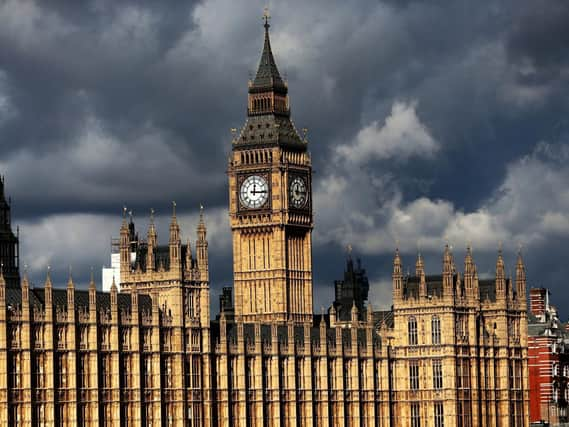Why Britain needs an Office for the Whistleblower - Greg Wright


However, it’s an inconvenient truth that whistleblowing is likely to lead to isolation and despair, especially if you’re a woman. The valuable role played by whistleblowing was highlighted by a jaw-dropping story which made headlines this week.
The owner of Pontins has entered into a legal agreement with the human rights watchdog after a whistleblower revealed it was using an “undesirable guests” list to exclude Gypsies and Travellers.
Advertisement
Hide AdAdvertisement
Hide AdBritannia Jinky Jersey Limited is working with the Equality and Human Rights Commission (EHRC) to prevent racial discrimination after a Pontins employee said the holiday park company was operating a discriminatory bookings policy. The EHRC verified the claims and said practices included a list of Irish surnames published on its intranet page, with staff required to block potential customers with those names from booking.
By declining to provide its services to guests of a certain race or ethnic group, Pontins was “directly discriminating on the basis of race” and breached the 2010 Equality Act, the EHRC said.
Britannia Jinky Jersey Limited said it was working to enhance its staff training and procedures to further promote equality throughout the business.
Downing Street condemned the blacklist as “completely unacceptable”. A spokesman said: “No-one in the UK should be discriminated against because of their race or ethnicity.”
Advertisement
Hide AdAdvertisement
Hide AdNone of this would have come to light without the sheer raw courage of the person who blew the whistle. She or he is a model citizen.
But most whistleblowers face a bleak fate. The All Party Parliamentary Group (APPG) on Whistleblowing, which was set up to provide much stronger and more comprehensive protection for whistleblowers, has published research analysing how whistleblowers fare when their case appears before a tribunal. It makes grim reading.
Only 12 per cent of whistleblowers whose cases go to preliminary hearing at Employment Tribunals in England and Wales are successful, the study found. Whistleblowers are suffering for doing the right thing. In 2018, nearly 40 per cent of whistleblowers reported going on sick leave, an increase of 15 per cent since 2015.
Justice is also being delayed for whistleblowers. In 2018, nearly half of their cases took longer than two years to reach a tribunal, and more than one in five took longer than three years. Post Covid this is likely to almost double because of the backlog with Employment Tribunals, the study found.
Advertisement
Hide AdAdvertisement
Hide AdThere is a significant gender dimension to this issue. Compared with male whistleblowers, female whistleblowers are more likely to report health issues, less likely to have legal representation and, even when the judge upholds the protected disclosures, they are less likely to see their unfair dismissal claim upheld.
To quote the report: “There is a real imperative to review the way in which inequality of arms impacts these outcomes in a system that was originally designed to provide swift and easy access to justice.”
“Increasingly, however, it seems this system is dominated by David v Goliath cases in which the employer has large skilled teams of legal advisers and the whistleblower is alone.”
Professor Kate Kenny, an academic who witnessed the impact of the financial crash on her native Ireland, has written a devastating analysis of the “matrix of censorship” which leads to whistleblowers being abused.
Advertisement
Hide AdAdvertisement
Hide AdProfessor Kenny of NUI Galway believes that whistleblower protection is wholly inadequate in terms of legal provisions.
She added: "It also raises questions about the culture in an organisation, in which punishing people who raise the alarm about serious issues is considered acceptable and nobody is held to account for doing so'."
That’s why the UK needs a national Office for the Whistleblower. The holder of this proposed post – which is backed by the support organisation Whistleblowers UK – would have the task of ensuring that cases are properly investigated and the public interest is protected.
The office holder would report to the Home Office and register potential whistleblowers. It would maintain a fund to support whistleblowers, monitor the progress of cases and intervene when needed.
Advertisement
Hide AdAdvertisement
Hide AdWithout this powerful advocate, many whistleblowers will be bullied into silence. Scandals will grow. Our world will become a less secure place.
Support The Yorkshire Post and become a subscriber today. Your subscription will help us to continue to bring quality news to the people of Yorkshire. In return, you'll see fewer ads on site, get free access to our app and receive exclusive members-only offers. Click here to subscribe.
Comment Guidelines
National World encourages reader discussion on our stories. User feedback, insights and back-and-forth exchanges add a rich layer of context to reporting. Please review our Community Guidelines before commenting.